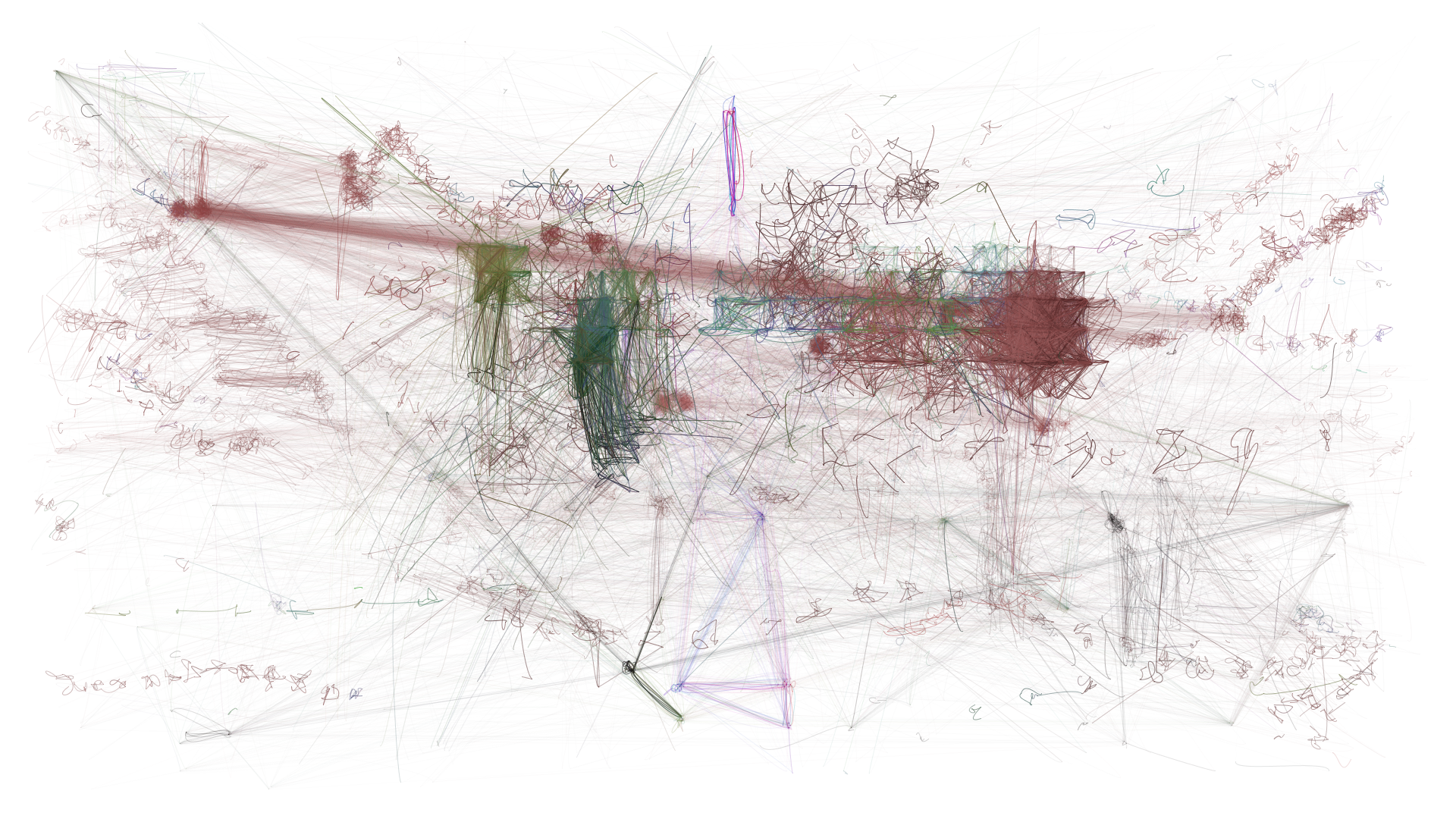Computers Watching Movies shows what a computational system sees when it watches the same films that we do. The work illustrates this vision as a series of temporal sketches, where the sketching process is presented in synchronized time with the audio from the original clip. Viewers are provoked to ask how computer vision differs from their own human vision, and what that difference reveals about our culturally-developed ways of looking. Why do we watch what we watch when we watch it? Will a system without our sense of narrative or historical patterns of vision watch the same things?
Computers Watching Movies was computationally produced using software written by the artist. This software uses computer vision algorithms and artificial intelligence routines to give the system some degree of agency, allowing it to decide what it watches and what it does not. Six well-known clips from popular films are used in the work, enabling many viewers to draw upon their own visual memory of a scene when they watch it. The scenes are from the following movies: 2001: A Space Odyssey, American Beauty, Inception, Taxi Driver, The Matrix, and Annie Hall.
 Video Still “Computers Watching Movies” – Matrix
Video Still “Computers Watching Movies” – Matrix
Benjamin Grosser creates interactive experiences, machines, and systems that examine the cultural, social, and political implications of software. Recent exhibition venues include Eyebeam in New York, Arebyte in London, Museu das Comunicações in Lisbon, Museum Ludwig in Cologne, and Galerie Charlot in Paris. His works have been featured in The New Yorker, Wired, The Atlantic, The Guardian, The Washington Post, El País, Libération, Süddeutsche Zeitung, and Der Spiegel. The Chicago Tribune called him the “unrivaled king of ominous gibberish.” Slate referred to his work as “creative civil disobedience in the digital age.” Grosser’s recognitions include First Prize in VIDA 16, and the Expanded Media Award for Network Culture from Stuttgarter Filmwinter. His writing about the cultural effects of technology has been published in journals such as Computational Culture, Media-N, and Big Data and Society. Grosser is an assistant professor of new media at the School of Art + Design, and co-founder of the Critical Technology Studies Lab at the National Center for Supercomputing Applications, both at the University of Illinois at Urbana-Champaign, USA.